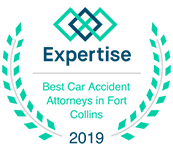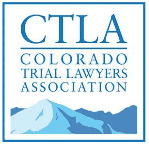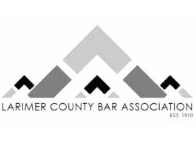Request a Free Consultation | No Upfront FeesSe Habla Español
970-225-2190 |
1-800-664-3151
Recent Blog Posts
Understanding Injuries Associated with Rear-End Accidents
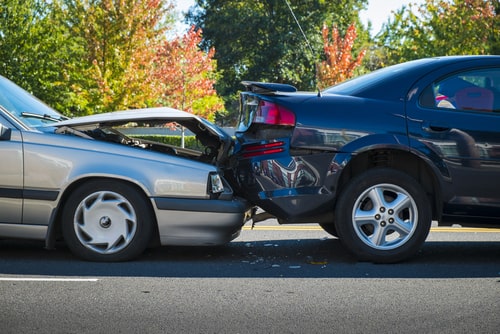 Rear-end collisions are a common form of car accidents, and they can cause a range of different injuries to the driver whose car was struck from behind. Understanding the kinds of injuries associated with rear-end accidents can help you recognize the signs of an injury and seek the appropriate medical treatment. Remember, if you have been involved in a car accident, contact an experienced personal injury to understand your rights and options moving forward.
Rear-end collisions are a common form of car accidents, and they can cause a range of different injuries to the driver whose car was struck from behind. Understanding the kinds of injuries associated with rear-end accidents can help you recognize the signs of an injury and seek the appropriate medical treatment. Remember, if you have been involved in a car accident, contact an experienced personal injury to understand your rights and options moving forward.
Common Injuries in Rear-End Accidents
An injury that is frequently associated with rear-end accidents is whiplash. Whiplash occurs when the head and neck are rapidly lurched forward and then snapped quickly back, causing harm to the soft tissue region of the neck. Whiplash can cause significant pain, stiffness, limited range of motion in the neck, headaches, dizziness, and fatigue. In addition to whiplash, other soft tissue injuries may include bruises, sprains, and strains, which are also very common. Soft tissue injuries can cause pain, swelling, and limited range of motion in the affected area and may require physical therapy or other medical treatment to recover fully.
What Are the Most Common Injuries on Construction Worksites?
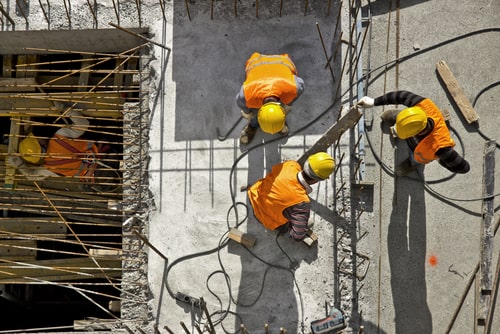 Construction is a high-risk industry involving heavy equipment, dangerous tools, and hazardous materials. Workers on construction sites face various risks that can result in severe injuries and even death. Understanding the most common injuries on construction worksites is imperative for knowing what to look for when you are on the job. If you are a construction worker injured on a worksite, you may be entitled to workers’ compensation benefits. Contact a workers’ compensation attorney to get the process started.
Construction is a high-risk industry involving heavy equipment, dangerous tools, and hazardous materials. Workers on construction sites face various risks that can result in severe injuries and even death. Understanding the most common injuries on construction worksites is imperative for knowing what to look for when you are on the job. If you are a construction worker injured on a worksite, you may be entitled to workers’ compensation benefits. Contact a workers’ compensation attorney to get the process started.
Five Most Common Construction Site Injuries
Here are five common construction injuries, including:
- Falls – Falls are the most common type of construction worksite injury. This can include falls from ladders, scaffolding, roofs, or other elevated surfaces. Workers not provided with proper fall protection or not trained to use fall protection equipment are at a higher risk of sustaining a fall-related injury.
Mistakes to Avoid Making After Being in a Car Accident
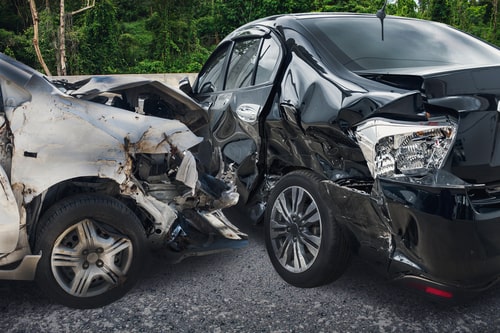 Being involved in a car accident can be a deeply traumatic experience. In the aftermath of an accident, it can be not easy to know what to do next. Unfortunately, several mistakes people commonly make after a car accident can have severe legal and financial consequences. As a result, consulting with an attorney after your accident is likely in your best interests as you look to recover from your injuries and pursue the compensation you may be entitled to.
Being involved in a car accident can be a deeply traumatic experience. In the aftermath of an accident, it can be not easy to know what to do next. Unfortunately, several mistakes people commonly make after a car accident can have severe legal and financial consequences. As a result, consulting with an attorney after your accident is likely in your best interests as you look to recover from your injuries and pursue the compensation you may be entitled to.
Here are Mistakes You Want to Avoid Making
- Failing to call the police – It is essential to contact law enforcement after a car accident, even if it is minor. The police report will provide critical information about the accident that can be used to support a claim for damages.
- Admitting fault – It is natural to want to apologize after an accident, but admitting fault can be used against you in a personal injury claim. Therefore, sticking to the facts and avoiding making statements that could be interpreted as an admission of fault is essential.
Personal Injury Claims vs. Lawsuits: Key Differences and Processes
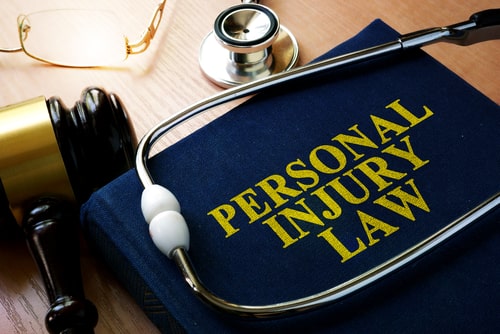 When faced with the aftermath of an injury caused by someone else’s negligence, the injured party may be unsure about the best course of action to obtain compensation for their losses. Two common legal avenues are personal injury claims and lawsuits. Although these terms are often used interchangeably, they represent different stages of the personal injury process. Today, we will discuss the essential differences between personal injury claims and lawsuits and help guide you through the steps involved in each. Remember, to best understand your legal options at this time, do not hesitate to contact a personal injury attorney to ensure your rights are protected throughout the process as you pursue the compensation you may be entitled to.
When faced with the aftermath of an injury caused by someone else’s negligence, the injured party may be unsure about the best course of action to obtain compensation for their losses. Two common legal avenues are personal injury claims and lawsuits. Although these terms are often used interchangeably, they represent different stages of the personal injury process. Today, we will discuss the essential differences between personal injury claims and lawsuits and help guide you through the steps involved in each. Remember, to best understand your legal options at this time, do not hesitate to contact a personal injury attorney to ensure your rights are protected throughout the process as you pursue the compensation you may be entitled to.
Personal Injury Claims
A personal injury claim is typically the initial step an injured party takes to seek compensation for their damages, such as medical costs, lost wages, and pain and suffering. The claim is filed with the at-fault party’s insurance company, initiating a negotiation process between the injured party or their attorney and the insurance adjuster. A personal injury claim aims to reach a satisfactory settlement without resorting to a lawsuit. The claim process involves gathering evidence to support the injured party’s case, such as medical records, witness statements, and documentation of lost wages. Negotiations between the parties can continue until both sides agree on a fair settlement amount. If an agreement cannot be reached, the injured party may decide to file a lawsuit.
What Is the Difference Between Personal Injury Law and Workers' Compensation Law?
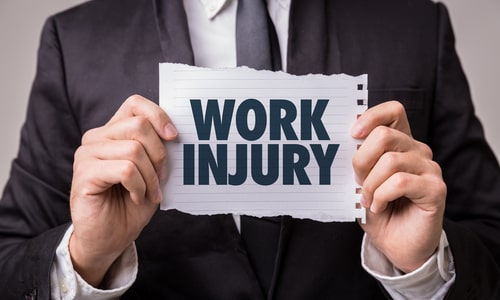 Personal injury law and workers' compensation law are two types of law that deal with injuries caused by accidents. Although both types of law involve injuries, there are significant differences between the two. Today, we will discuss the essential differences between the two types of law. Remember, if you have suffered an injury, contact an attorney to ensure your rights are protected throughout the legal process. If you are unsure what kind of attorney to call, this blog will provide that answer.
Personal injury law and workers' compensation law are two types of law that deal with injuries caused by accidents. Although both types of law involve injuries, there are significant differences between the two. Today, we will discuss the essential differences between the two types of law. Remember, if you have suffered an injury, contact an attorney to ensure your rights are protected throughout the legal process. If you are unsure what kind of attorney to call, this blog will provide that answer.
Personal Injury Law vs. Workers' Compensation Law
Personal injury law deals with injuries caused by another party's negligence or intentional actions. For example, suppose someone is injured in a car wreck because of someone else's reckless driving. In that case, the injured individual can file a personal injury lawsuit against the driver who caused the crash in order to seek compensation for their damages. Personal injury law also covers a wide range of accidents, including car crashes, slip-and-fall events, medical malpractice, and product liability.
Legal Options When You Are in a Crash with a Hit-and Run-Driver
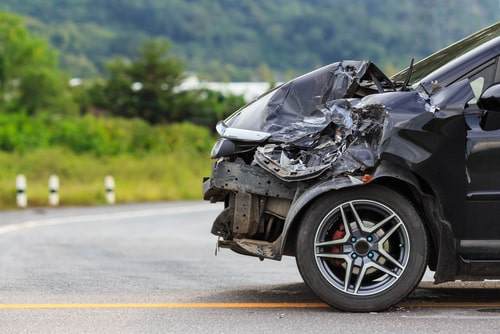 You are driving down the road when suddenly, in your rearview mirror, you see a car traveling at a high rate of speed heading straight for you. Before you can react, the car slams into yours, sending you into an out-of-control tailspin off the road. As your car spins and grinds to a halt off the road, you see the reckless driver take off in their car and speed away. You suddenly realize you just experienced a hit-and-run accident. What should you do?
You are driving down the road when suddenly, in your rearview mirror, you see a car traveling at a high rate of speed heading straight for you. Before you can react, the car slams into yours, sending you into an out-of-control tailspin off the road. As your car spins and grinds to a halt off the road, you see the reckless driver take off in their car and speed away. You suddenly realize you just experienced a hit-and-run accident. What should you do?
Being involved in a hit-and-run accident can be a terrifying experience. However, there are several steps you should take to protect your rights and ensure that you can pursue compensation for the damages to your vehicle and to any physical injuries you may have sustained. Today, we will discuss five steps you should take if you have been involved in a hit-and-run. To ensure your rights are protected, contact a car accident attorney who will guide you through the process as you work to secure the compensation you may be entitled to.
What Can Motorcyclists Do to Help Stay Safe on the Road?
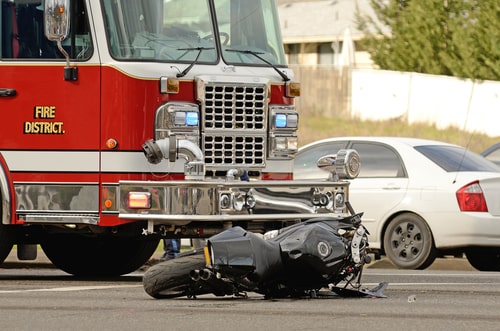 Riding a motorcycle, especially here in beautiful Colorado, can be an exhilarating experience, but it can also be perilous if proper safety precautions are not taken. Motorcyclists are particularly vulnerable out on the road, as they lack the protection of a car’s metal frame and are often overlooked by other drivers. Today, we are going to discuss what motorcyclists can do while riding that can help keep them safe and avoid deadly motorcycle accidents. If you have been involved in a motorcycle accident, do not hesitate to contact a personal injury to understand your legal options.
Riding a motorcycle, especially here in beautiful Colorado, can be an exhilarating experience, but it can also be perilous if proper safety precautions are not taken. Motorcyclists are particularly vulnerable out on the road, as they lack the protection of a car’s metal frame and are often overlooked by other drivers. Today, we are going to discuss what motorcyclists can do while riding that can help keep them safe and avoid deadly motorcycle accidents. If you have been involved in a motorcycle accident, do not hesitate to contact a personal injury to understand your legal options.
Essential Tips for Motorcyclists Who Want to Stay Safe
Keep these tips in mind for the next time you are out on the road riding your motorcycle, including:
- Wear proper safety gear – The most crucial thing a motorcyclist can do to protect themselves on the road is to wear the appropriate safety gear. This includes wearing a helmet, eye protection, gloves, a motorcycle jacket with built-in protective armor, and boots that cover the ankles. All of these items can provide crucial protection in the event of an accident.
What Are the Most Common Misconceptions Regarding Personal Injury Cases?
 In law, personal injury cases can arise when one person suffers harm or injury due to another person's negligence or intentional actions. These cases can be complex, and there are many misconceptions regarding personal injury cases that can prevent individuals from seeking the compensation they deserve. Today, we will be discussing what some of those misconceptions are. If you have suffered a personal injury, do not hesitate to consult with an experienced personal injury attorney.
In law, personal injury cases can arise when one person suffers harm or injury due to another person's negligence or intentional actions. These cases can be complex, and there are many misconceptions regarding personal injury cases that can prevent individuals from seeking the compensation they deserve. Today, we will be discussing what some of those misconceptions are. If you have suffered a personal injury, do not hesitate to consult with an experienced personal injury attorney.
Common Misconceptions Associated with Personal Injury Cases
Here are some of the most common misconceptions that many people associate with personal injury cases, including:
- Personal injury cases are all about getting rich quickly – This is one of the biggest misconceptions about personal injury cases. The truth is that most personal injury cases are about seeking compensation for medical bills, lost wages, and other expenses incurred due to the injury. This compensation is intended to help the injured person get back on their feet and cover the costs and hardships related to the injury.
What Mistakes Can Jeopardize a Personal Injury Claim and How Can You Avoid Making Them?
 Personal injuries can befall us at any time for various reasons. Personal injury law aims to provide a way for injured individuals to seek compensation for their losses, including medical expenses, lost wages, pain and suffering, and other damages. Unfortunately, when filing a personal injury claim, certain mistakes can be made that can significantly jeopardize the success of your claim. Today, we will discuss some of those mistakes when filing a claim and how to avoid making them. Strongly consider contacting a personal injury attorney if you have suffered an injury to help ensure your rights are protected and advocated for.
Personal injuries can befall us at any time for various reasons. Personal injury law aims to provide a way for injured individuals to seek compensation for their losses, including medical expenses, lost wages, pain and suffering, and other damages. Unfortunately, when filing a personal injury claim, certain mistakes can be made that can significantly jeopardize the success of your claim. Today, we will discuss some of those mistakes when filing a claim and how to avoid making them. Strongly consider contacting a personal injury attorney if you have suffered an injury to help ensure your rights are protected and advocated for.
Common Mistakes and How to Avoid Making Them
Several mistakes can jeopardize a personal injury claim. Here are some of the most common ones, including:
Failing to seek medical attention – If you have been injured, it is essential to seek medical attention as soon as possible. Failing to do so can make it difficult to prove the extent of your injuries, and insurance companies may use this against you. Also, keep in mind that some injuries may not manifest themselves right away. Even if you do not think your injury is overly serious, still seek medical treatment.
What to Know About Traumatic Brain Injuries in Larimer County
 Traumatic brain injuries (TBI) are one of the most severe forms of personal injury that can befall a person. Tragically, these types of injuries can profoundly impact the lives of those suffering from them and their family. As a result, it is essential to understand the effects of such injuries and the potential legal ramifications of suffering a severe injury such as a TBI.
Traumatic brain injuries (TBI) are one of the most severe forms of personal injury that can befall a person. Tragically, these types of injuries can profoundly impact the lives of those suffering from them and their family. As a result, it is essential to understand the effects of such injuries and the potential legal ramifications of suffering a severe injury such as a TBI.
A traumatic brain injury occurs when an external force causes damage to the brain. This can happen for many reasons, including car accidents, sports injuries, falls, or even physical assault. Today, we will discuss the wide-ranging symptoms and effects of such injuries and the legal remedies available for someone who suffers this type of injury. If you have suffered a TBI and are wondering what legal options you may have, contact a personal injury attorney who will ensure that your rights remain protected and respected and that a positive case outcome can be pursued in your favor.

970-225-2190 | 1-800-664-3151
1403 W. 29th St.,
Loveland, Colorado 80538
Greeley:
3835 W. 10th Street, Unit 100,
Greeley, Colorado 80634|
970-460-2220
Longmont:
353 Main Street, Suite A,
Longmont, Colorado 80501|
720-575-0509
Boulder:
4450 Arapahoe Avenue, Suite 100,
Boulder, Colorado 80303|
303-997-2018
Ft. Collins:
1109 Oak Park Dr Ste 100,
Fort Collins, CO 80525|
970-225-2190
Cheyenne:
109 E. 17th St., Suite #6148,
Cheyenne, WY 82001|
307-227-4051 (By Appointment Only)




